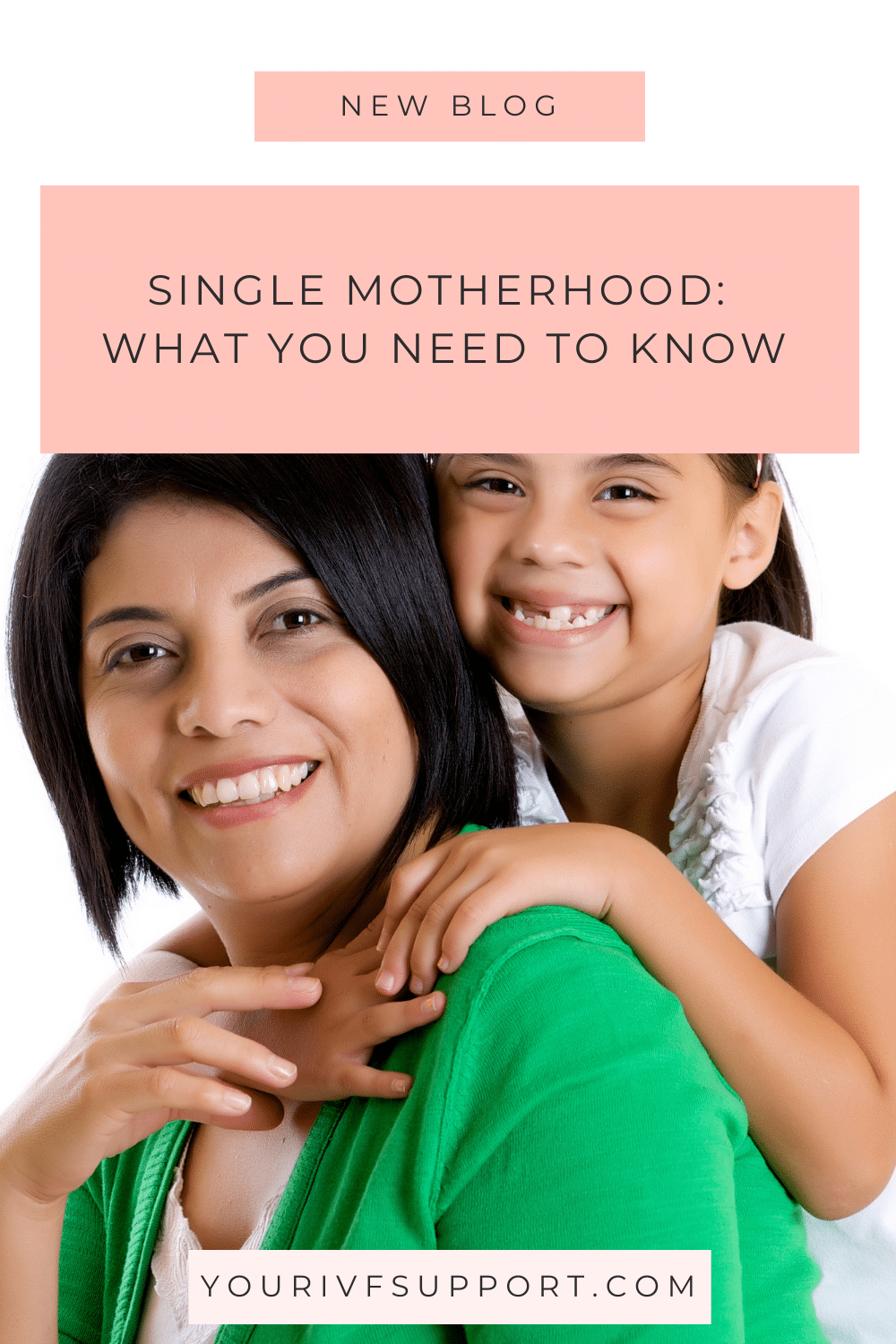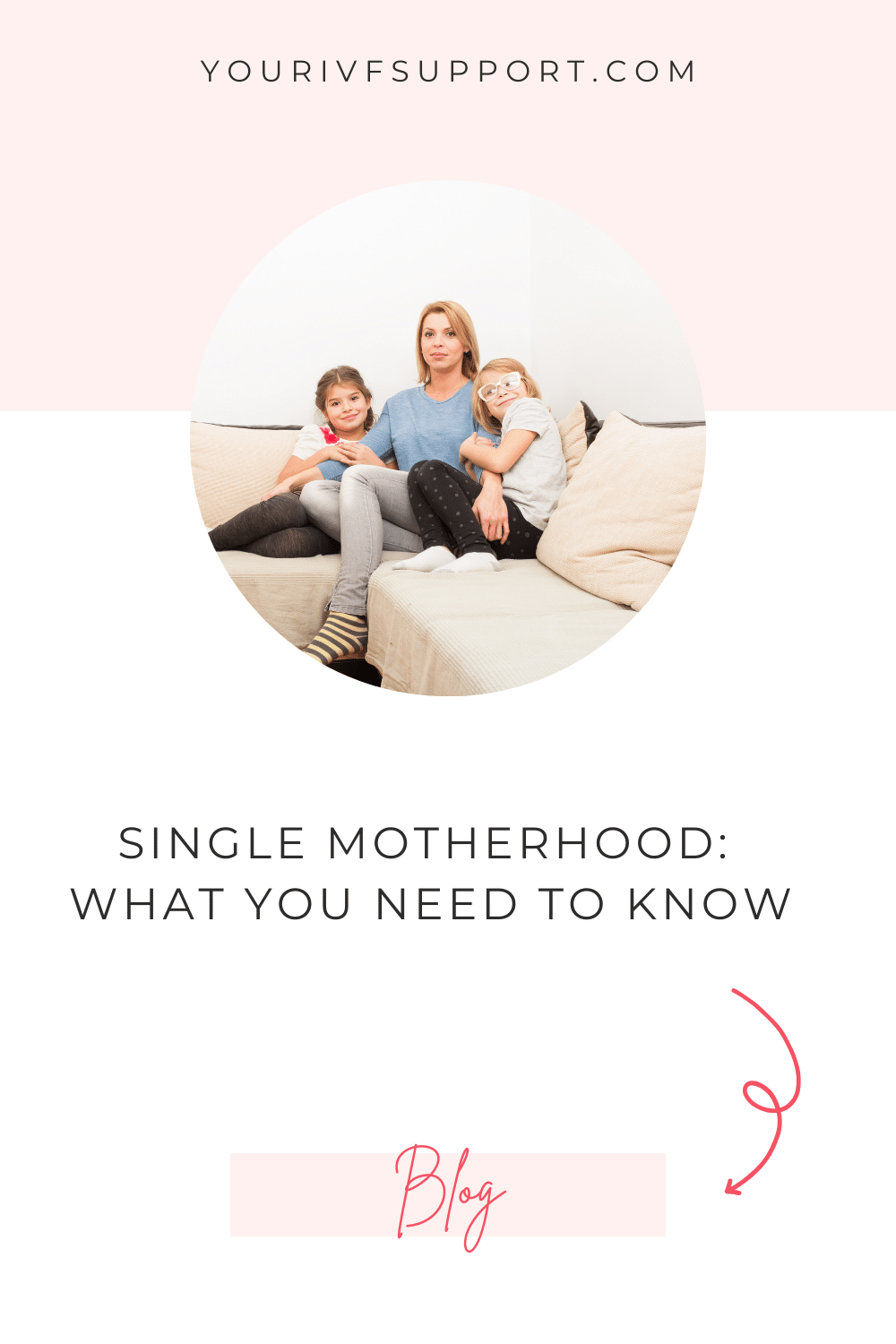You are a confident, independent woman who dreams of becoming a mother. But you are single and wondering if it is possible to have a baby? In this blog article I would like to encourage and inform you about how single women can fulfil their desire to have children. We will look at different options, discuss the challenges and show you how you can make your dream of having your own child come true.
The desire to have a child and social acceptance
The decision to raise a child alone can still be met with prejudice and mistrust in our society. It is important to realise that your desire to have children is legitimate and that you have the right to start your own family, regardless of your relationship status. There is a growing acceptance of single mothers and you are not alone on this journey.
Single women and the biological clock
The biological clock ticks regardless of our relationship status. For many women, it can be worrying that fertility declines with age. It is therefore advisable to address the issue in good time. See your gynaecologist to have your fertility checked and discuss options to maximise your chances of getting pregnant.

Fertility treatments for single women
Artificial insemination
Artificial insemination, specifically in vitro fertilisation (IVF), is one way to fulfil your desire to have a child as a single woman. This involves fertilising an egg outside the body and then implanting it in the womb. This treatment can be expensive and usually requires several attempts. It is important to do your research and find a clinic or specialist you can trust.
Sperm donation
Sperm donation is a popular method of fulfilling a single woman's desire to have children. Sperm donation involves the recipient receiving sperm from a donor to induce pregnancy. There are several aspects to sperm donation that need to be considered, such as the choice of donor, the legal framework, the insemination process and the procurement of donor sperm.
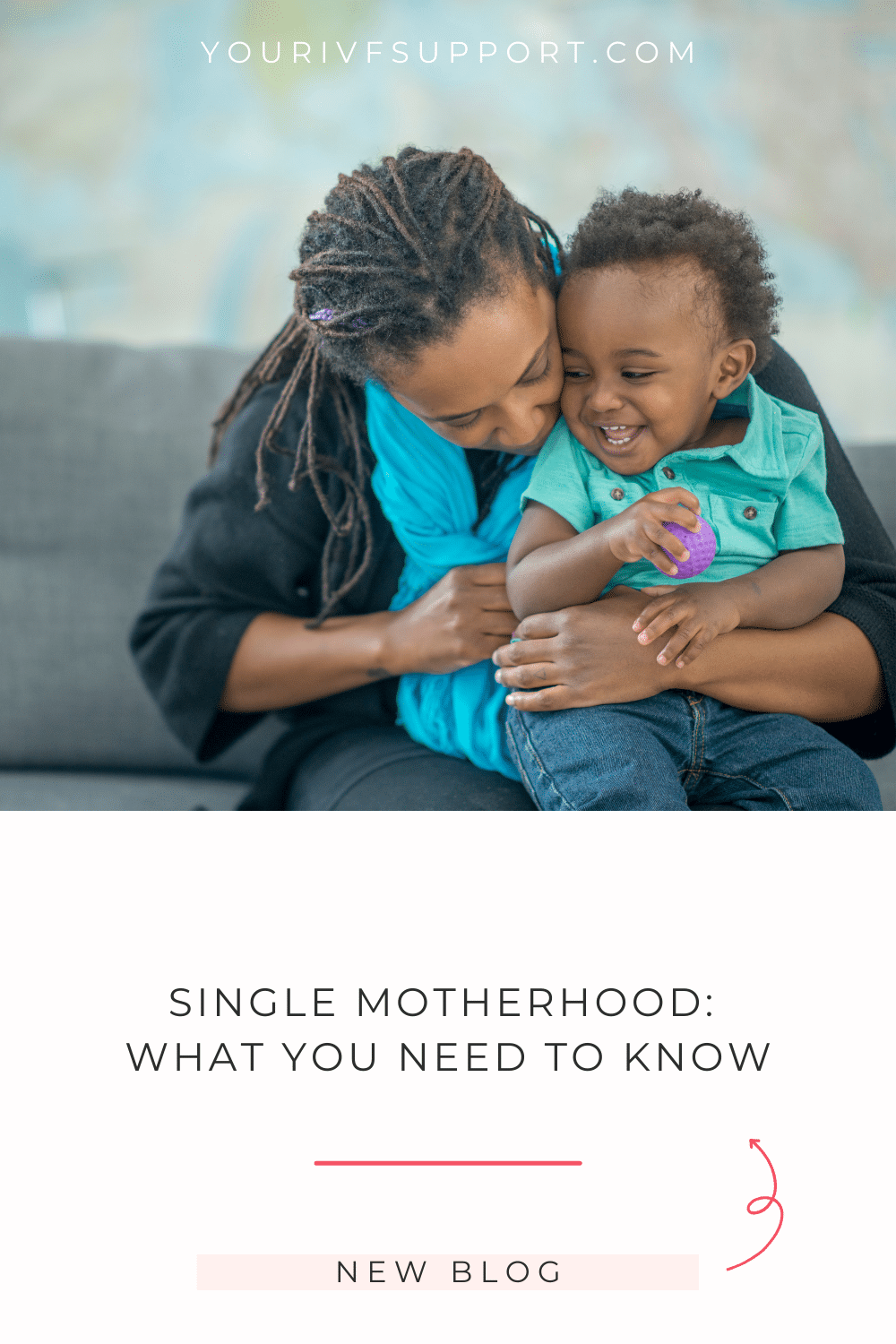
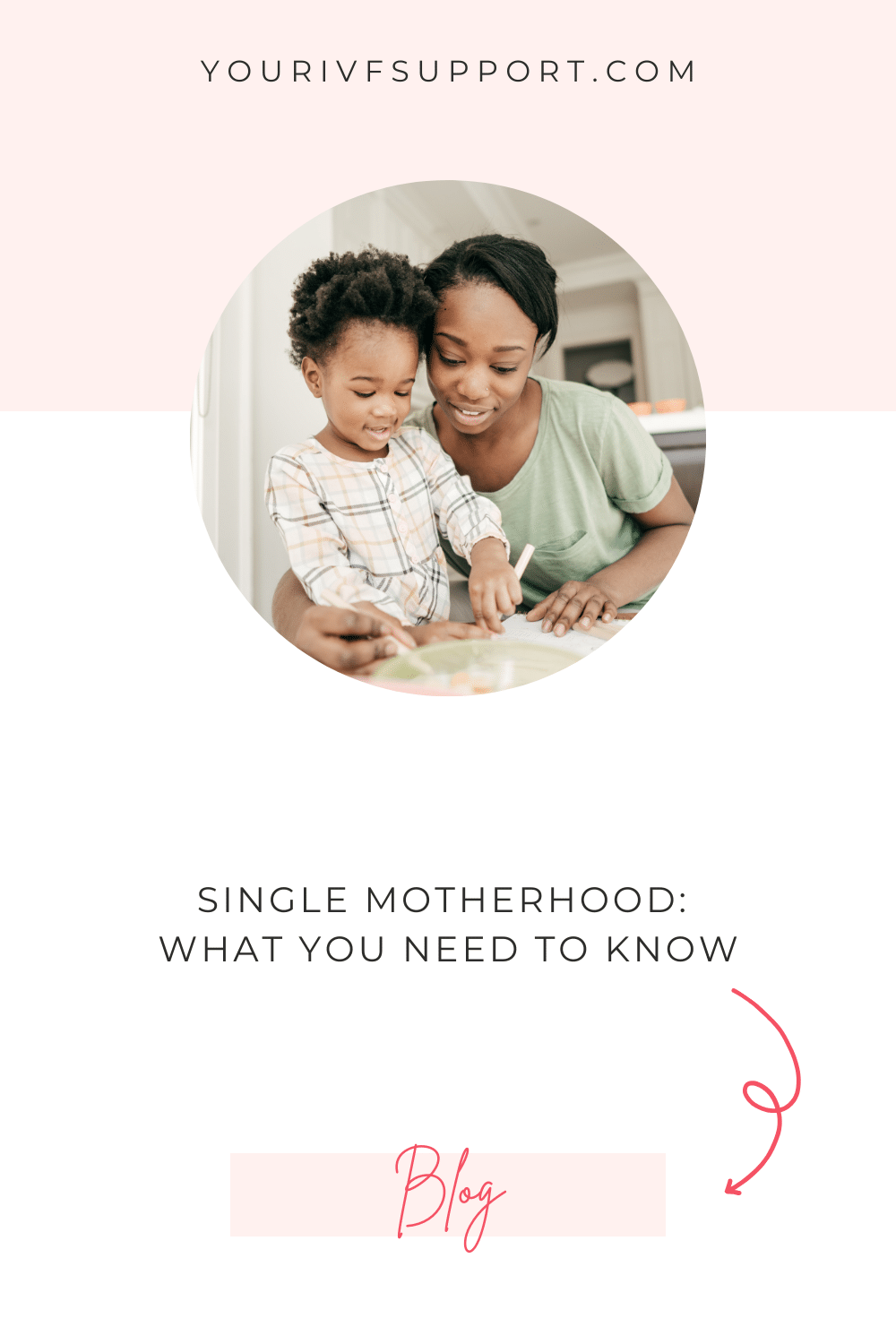
Types of donors: Open, anonymous and known donors.
There are different types of sperm donors.
Anonymous donors are individuals whose identity is unknown to the recipient and the child. Most sperm banks offer a wide range of anonymous donors with extensive information about their characteristics, health history and personality.
Open donors are individuals who are willing to have a future relationship with the child if the child so wishes. This form of sperm donation allows the child to receive information about the donor at a later date and to make contact if they wish. The exact terms of disclosure will depend on the agreement between the donor and the recipient.
A known donor is someone the recipient knows personally. This could be a friend, an acquaintance or someone the recipient has met through specialised platforms or social networks. It is important to make clear arrangements when using a known donor to address legal and emotional issues.
" It is important to realise that your desire to have children is legitimate and that you have the right to start your own family, regardless of your relationship status."
The insemination process
Insemination can be done in a number of ways. Usually, the donor's sperm is introduced through the cervix or directly into the uterus. This can be done naturally, through intercourse at the right time of ovulation, or through a medical method such as intrauterine insemination (IUI).
With IUI, the donor's washed and prepared sperm is inserted into the uterus. Before insemination, the recipient is usually treated with hormones to regulate ovulation and increase the chances of pregnancy. The exact insemination procedure depends on individual circumstances and medical protocol and should be discussed with a healthcare professional.
Obtaining donor sperm
Donor sperm can be obtained from a number of sources. Specialised sperm banks offer a wide range of donors with detailed information about their health, physical characteristics, education, hobbies and personality. These sperm banks have rigorous screening procedures to ensure the health of the donor and the quality of the sperm.
There is also the option of choosing a known donor, be it a friend or someone the recipient has met through personal contacts or specialised platforms. When choosing a known donor, it is important to have open and clear communication to clarify the legal and emotional aspects. Legal advice and a contract to set out agreements and responsibilities may also be recommended.
Some countries have specific laws and policies regarding sperm donation, including the legal status of the donor, the rights and responsibilities of all parties involved, and regulations regarding donor openness or anonymity. It is important to be aware of the relevant legal framework in your own region or in the country where the sperm donation will take place, and to seek legal advice if necessary.
When choosing a sperm bank or donor, it is advisable to do your research and look at quality standards and screening procedures to ensure that the sperm used is of high quality and offers the best chance of achieving a pregnancy. It is important to consider the success rates and experiences of other women and to seek advice from professionals or counselling services if necessary.
Sperm donation offers single women the opportunity to fulfil their desire to have children and start a family. The selection of the donor, the insemination procedure and the procurement of the sperm donation are important issues that should be carefully planned and decided. It is advisable to seek comprehensive information, professional advice and, if necessary, legal advice to find the best way to fulfil your desire to have children as a single woman.

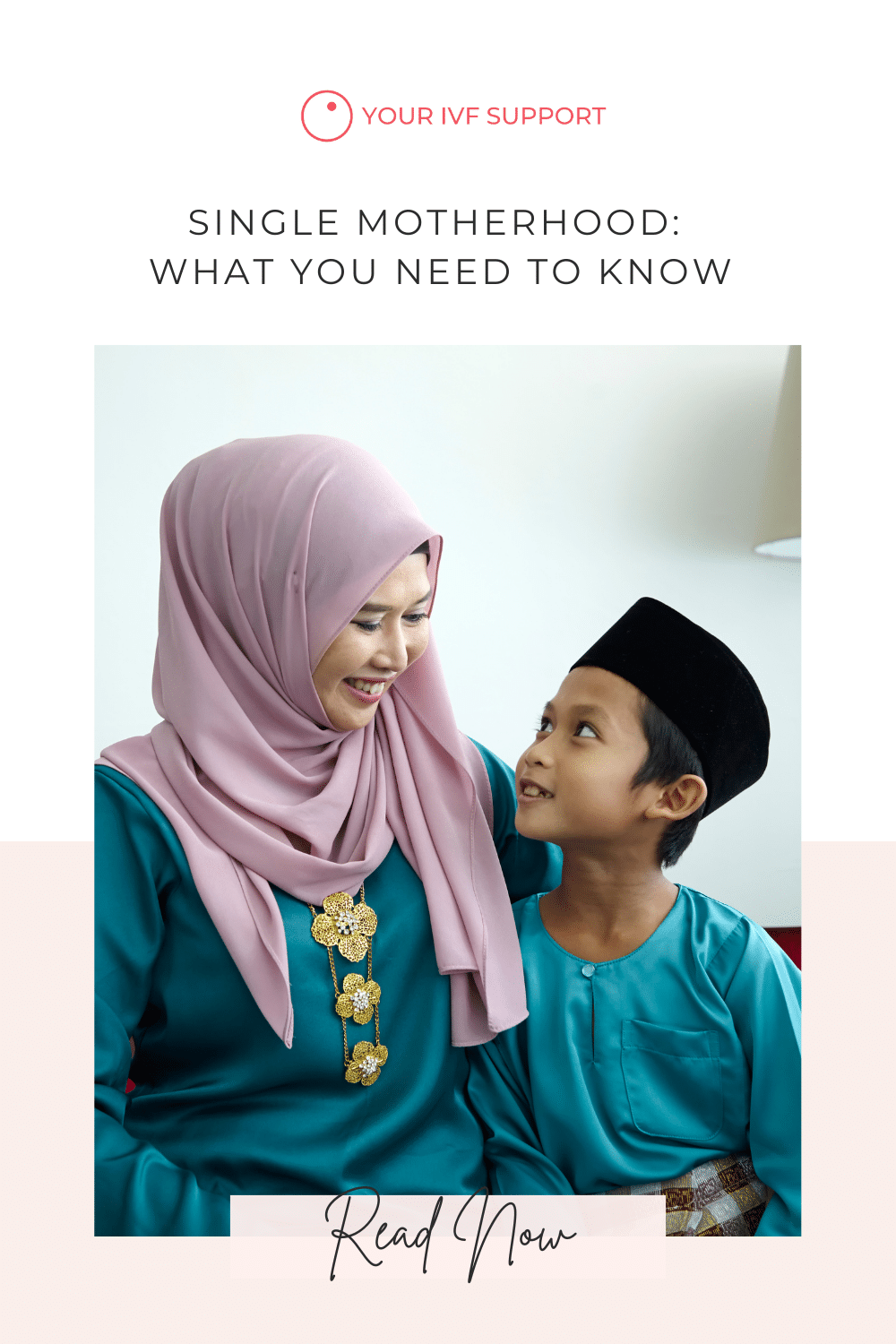
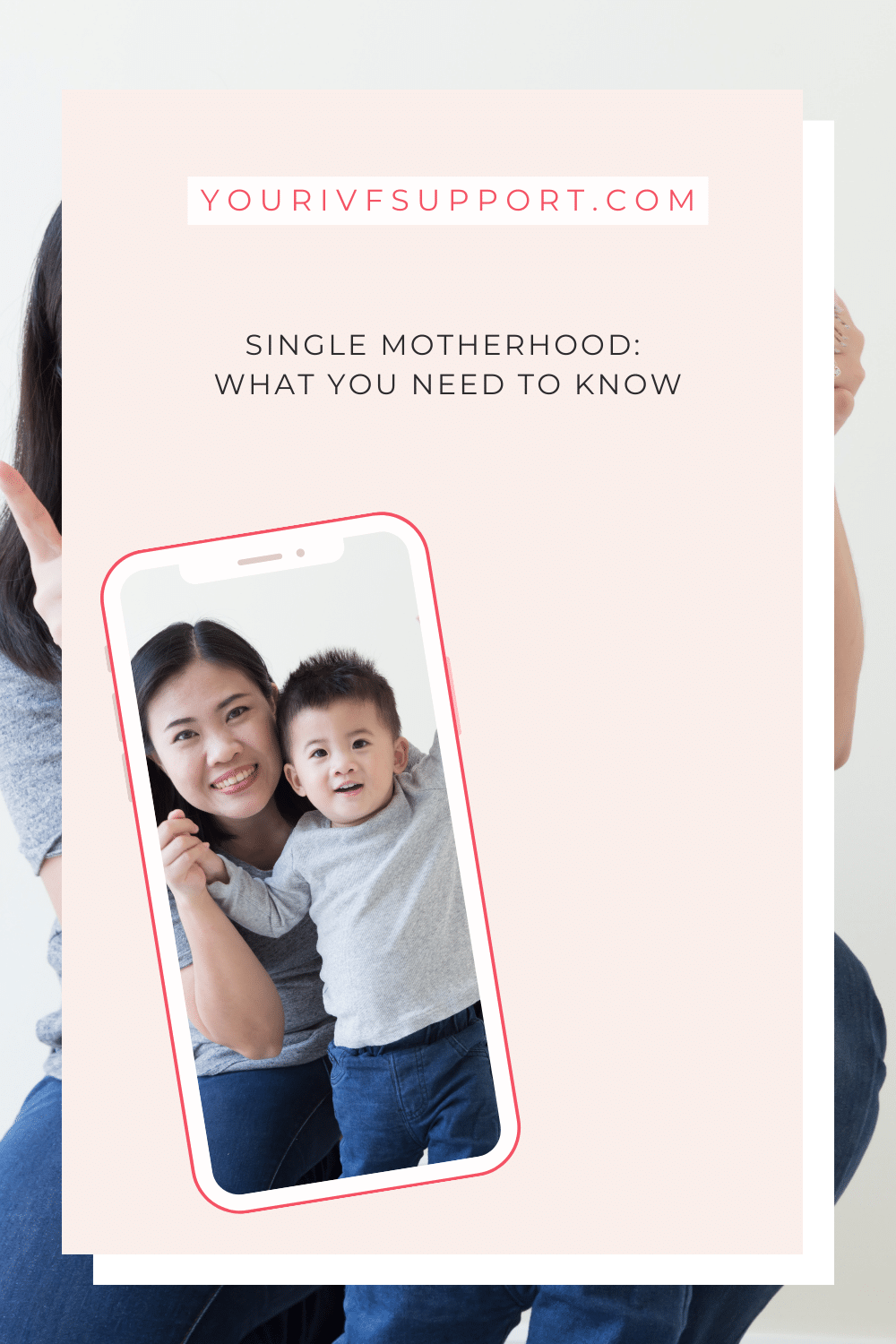
Embryo donation
Embryo donation is another way for single women to fulfil their desire to have a child. Embryo donation provides single women with donated fertilised and anonymous embryos from couples who have either completed their family planning and have surplus embryos from previous IVF treatment. Alternatively, they can receive donated open or anonymous eggs and sperm that have been personally selected by the recipient. These embryos are then transferred to the recipient's uterus to induce pregnancy.
Embryo donation offers single women the chance to become pregnant and have a child, even if they do not have eggs of their own. This can be particularly important for women who are older or have a low egg reserve. Embryo donation allows them to experience pregnancy and have a biological connection to their child.
The embryo donation process usually involves extensive medical evaluation and preparation for both the donor parents and the recipient. This includes genetic compatibility, health screening and legal and ethical consent. In some countries and regions there are specific legal requirements for embryo donation that need to be considered.
It is important to remember that embryo donation is a personal decision and involves various emotional, ethical and legal considerations. It is advisable to seek comprehensive information, professional counselling and, where appropriate, legal support to ensure that all aspects of embryo donation are fully considered and understood.
For single women who choose embryo donation, it can be a fulfilling way of achieving their family planning goals. It is important to be open about how the child was conceived and to build the family with love, openness and understanding. Embryo donation allows single women to form a deep bond with their child and experience a precious parent-child relationship.
Ultimately, embryo donation is an option that allows single women to realise their dream of having their own family. It requires careful consideration and preparation to ensure that everyone involved, including the donor parents, the recipient and the future child, can grow up in a supportive and loving environment. With the right support and preparation, embryo donation can be a wonderful way to fulfil a single woman's desire to have a child and experience happy and fulfilling parenthood.
Co-parenting
Another way for single women to fulfil their desire to have children is through co-parenting. Co-parenting involves two or more people coming together to conceive and raise a child without being romantically involved. This approach allows single women to fulfil their desire to parent while sharing the responsibilities and joys of parenthood with another person.
Co-parenting can be structured in a variety of ways. For example, two single women may decide to have a child together and raise it together. Another situation could be a single woman and a single man coming together as co-parents. It is also possible for a single woman and a same-sex couple to become co-parents. The exact arrangement of co-parenting depends on the individual preferences and agreements of the people involved.
Co-parenting requires extensive communication, openness and clarity about the roles and responsibilities of all involved. It is important to talk about all aspects of parenting up front, including parenting philosophy, financial responsibility, sharing of caregiving responsibilities, and decision making. A legal framework, such as a co-parenting agreement, can help to set out agreements and expectations and minimise potential conflicts in the future.
There are several benefits to co-parenting. By working with another person or persons, you can share the challenges of parenting and find support in difficult times. It can also be enriching if the child can develop a strong relationship with multiple caregivers from the start. In addition, co-parenting allows single women to pursue their careers and personal interests while fulfilling their desire to have children.
It is important to emphasise that co-parenting brings unique dynamics and challenges. Open communication, mutual support and the ability to compromise are essential for successful co-parenting. It may also be helpful to seek professional support, such as counselling or mediation, to help manage conflict when needed.
Ultimately, co-parenting is an individual decision that should be well considered. It is advisable to research other co-parenting arrangements, talk to those involved and seek professional advice if necessary in order to make an informed decision.
Co-parenting can be a wonderful way to fulfil your desire to have children as a single woman and to experience supportive and loving parenthood. It opens up new possibilities and allows you to build a family based on trust, cooperation and mutual support.
In today's world, there are also specialised platforms and online communities that help people find potential co-parents. These platforms allow singles who wish to co-parent to find potential partners who share similar ideas and values. They can get to know each other, discuss their ideas and aspirations, and decide if co-parenting is right for them.
It is important to realise that co-parenting is not the right option for everyone. It requires openness, trust and good communication between all parties. Before deciding to co-parent, it is advisable to do thorough research, seek professional advice and possibly legal advice to ensure that all legal aspects and responsibilities are considered.
In conclusion, co-parenting is an alternative for single women who want to become mothers and share the responsibilities and joys of parenthood with another person or persons. It offers the opportunity to create a loving family and fulfil the desire to have children while sharing support and experiences with others. It is a unique and individual decision that should be well thought out and thoroughly prepared in order to find the best way to fulfil the desire to have children.
Support for single mothers
As a single mother, you will undoubtedly face challenges. But it's important to know that there are support systems in place to help you along the way. There are organisations, networks and support groups that focus specifically on single mothers and can provide emotional, practical and financial support. Look for local resources in your area and build a strong support network.
The challenges of single parenting
Being a single parent can be stressful and challenging. It means being responsible for your child on your own while managing daily tasks. It is important to recognise that there will be moments of exhaustion and overwhelm. Good organisation, time management and a willingness to accept help are crucial to managing daily life.
The importance of a strong social network
A strong social network can be invaluable for single mothers. Family, friends and other mothers can provide support, relief and practical help. Don't be afraid to ask for and accept help. It's also important to get involved in communities and groups where you can meet other single mothers who are going through similar experiences.
Self-care and stress management.
As a single mother, it's easy to become preoccupied with your child's wellbeing and neglect your own self-care. However, it is important to take care of yourself and make time for rest and relaxation. Look for activities that give you pleasure and energy and find ways to relieve stress, whether it's through exercise, meditation, creative activities or socialising with other women.
The joys and benefits of being a single mother.
Although single parenthood is undoubtedly challenging, there are many positive aspects and joys that come with it. You have the opportunity to raise your child according to your values and beliefs and to build a strong bond. You can set your own pace and routine and focus entirely on your child's needs. You can be proud of yourself for choosing to have your child and for being a loving, caring mother.
The path to fulfilling your desire to have a child
The desire to have children is real and achievable for single women. There are several ways to make this dream come true, whether it is through artificial insemination, sperm donation or adoption. It is important to do your research, seek support and build a strong social network. Single parenthood brings challenges, but also joys and benefits. With self-care, stress management and a strong support system, you can successfully navigate the journey of single motherhood.
Remember, you are not alone. There are many women out there who have the same desire to have children as you and are making their dreams come true. Be brave, trust yourself and follow the path that is right for you. The decision to become a mother is in your hands and you have the potential to be a wonderful mother.
Whatever path you choose, I wish you from the bottom of my heart that your desire to have children comes true and that you experience the joy and love that motherhood brings.
You are strong, you are brave and you have everything it takes to be a great mother.
